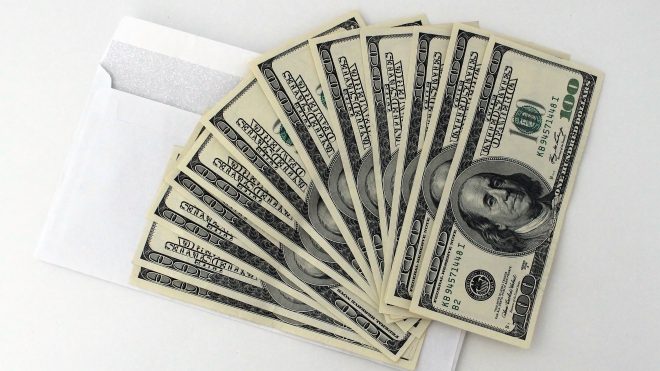A financial hardship strikes–you have two kids in college who need tuition paid, but you just lost your job. You feel trapped. The money needs to go out but there is nothing coming in to support it. Then you remember: you have a large pile of money tucked away in a 401(k).
The money isn’t doing much, it is just sitting around waiting for the day you turn 59 and a half. Should you take a loan from your 401(k)?
The Upfront Price
When you decide to take money from your 401(k), you must state upfront if it is a withdrawal or a loan. Claiming a withdrawal means you have no intention of ever paying the money back, and will come with 10% penalty plus income tax. A loan, on the other hand, will mean you are borrowing from yourself, but you are required to pay yourself back.
Taking a loan from a 401(k) comes with some hefty penalties. You’re allowed to borrow up to $50,000 from your 401(k) or half the account value, whichever is the smallest. You will have a defined payment period, and will be required to pay interest, but if you don’t repay yourself within the specified time period, it will cost you. First off, there is a 10% early withdrawal penalty. In addition, there may be income tax tacked on top of that. Even if your plan allows for a hardship withdrawal, for a pertinent financial situation such as a medical emergency, there will still be the 10% penalty and income tax. In 2011 alone, Americans paid a collective $5.7 billion in early withdrawal penalties.
The Invisible Cost
There is an opportunity cost to taking a loan as well. Opportunity cost is what you are giving up by not picking the next best option.
Say you are 45 years old when a financial hardship hits you. You borrow $40,000 from your 401(k) to cover the expenses and do not pay yourself back, so are subject to early withdrawal and income tax penalties. Now, not only is the loan costing you 10% and the income tax charged on it, but it is costing you all the compound interest that money would have gained if you were to leave it in your 401(k).
So if you were to leave that $40,000 in your 401(k), and say it averaged a 6% per year return, then the money would have grown to $93,109.72 by the time you were 59 ½ years old. That means your loan cost you $53,109.72 in lost potential growth
The Reality
When we borrow early from our 401(k), it leaves us with less in retirement. Retirement is now a 25-30 year proposition, and so many things can derail it. We need a solid foundation of assets to last us all 25-30 years. To do so, we need to first have a pool of assets built up, and then allocate those assets in such a way so the returns to our money let us enjoy our retirement without depleting our principal.
Taking a loan from your 401(k) can be dangerous and come with heavy upfront costs. You will leave yourself with less money for retirement. With a smaller asset pool, you may either have to delay retirement until you build up savings, or you may run out of money and be forced back into work.
In reality, life comes with bills, and we need to pay them. When your house is facing foreclosure, or your children need tuition paid and you lost your job, you need money to pay for all these. Sometimes the only funds we have are tucked away in our 401(k)’s.
Can you borrow from your 401(k)? Yes, you may. But remember the considerable costs. Your 401(k) should be your absolute last life line, the source of money you use after everything else you tried is not working. It is your lender of last resort.



